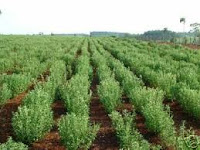BPC-157, the Orally Available Peptide That Repairs Tendon, Muscle, Intestines, Teeth, Bone and More in Vitro & Vivo

BPC is not patentable, and thus not interesting for BigPharma. In a way this article is a response to a question I got from Ryan on the Faebook Page of the SuppVersity a week ago. He asked, whether I had an article on Pentadecapeptide BPC-157, a substance of which he'd heard that it can accelerate tendon and muscle repair and work all sorts of other healing magic. Now, as a regular at the SuppVersity you may know that I didn't have an article on this agent a week age. So I decided to write one. Not just because Ryan asked, but also because of the practical significance of the healing effects of this peptide from in vitro and in vivo studies (no medical advice here!). Unlike antioxidants with their anti- hormetic effects, BPC-157 actually promotes healing Is Vitamin E Good for the Sedentary Slob, Only? Even Ice-Baths Impair the Adapt. Process Vit C+E Impair Muscle Gains in Older Men C+E Useless or Detrimental for Healthy People Vitamin C and G...


